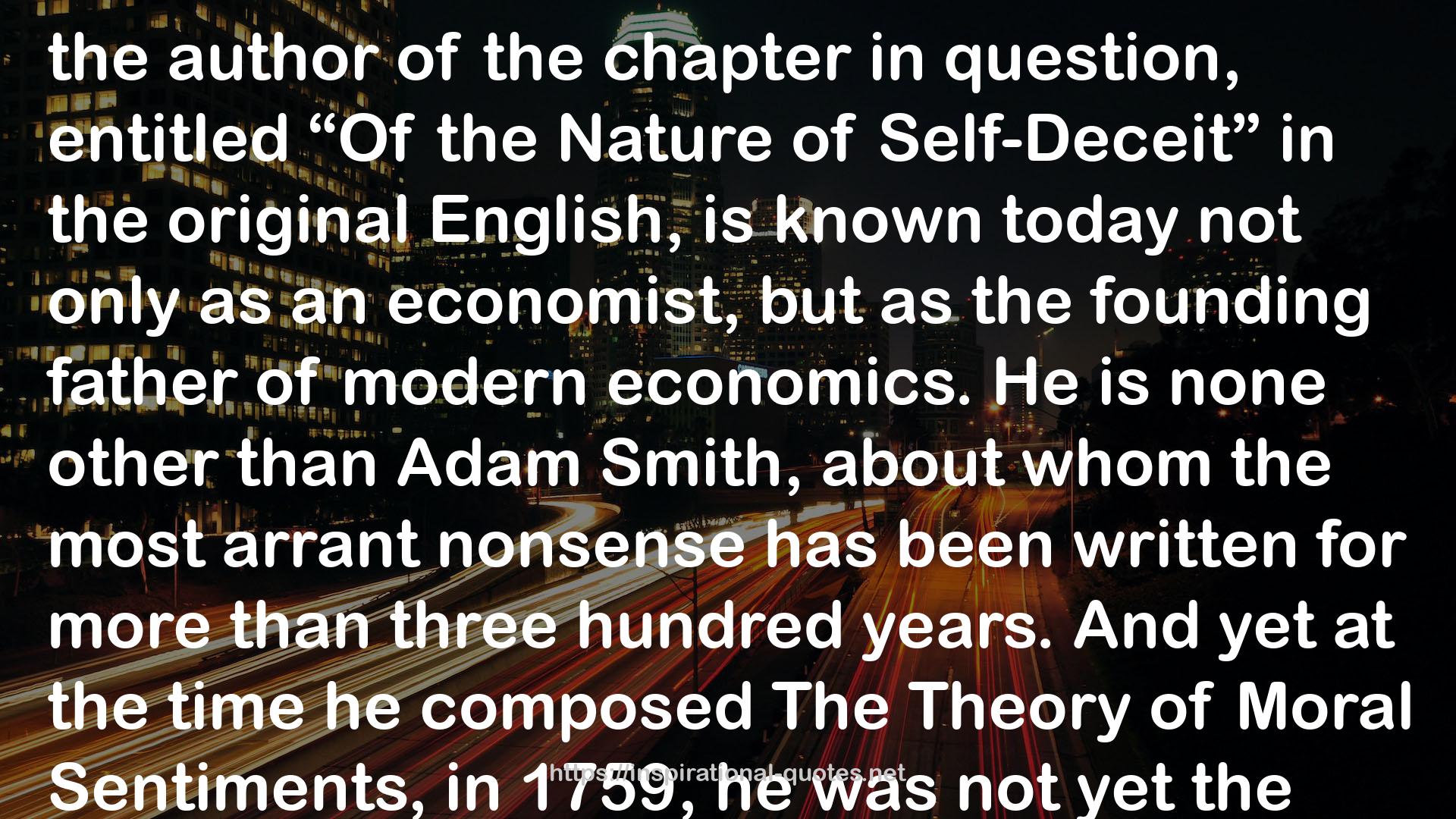" the author of the chapter in question, entitled “Of the Nature of Self-Deceit” in the original English, is known today not only as an economist, but as the founding father of modern economics. He is none other than Adam Smith, about whom the most arrant nonsense has been written for more than three hundred years. And yet at the time he composed The Theory of Moral Sentiments, in 1759, he was not yet the economist he was to become over the course of the next two decades while composing An Inquiry into the Nature and Causes of the Wealth of Nations, published in 1776. Smith started out as a moral philosopher, teaching at Glasgow, and became a foremost representative of the Scottish Enlightenment. His Theory—the womb from which, as Smith himself insisted, the Inquiry sprang—remains the most complete statement of his thinking about man and society. Wealth, he holds, attracts the envious notice of others, because they wish to be wealthy themselves; and if they desire wealth, it is so that they themselves may be noticed in their turn. The poor man suffers less from being poor than from the fact that no one pays attention to him. If, "
― Jean-Pierre Dupuy , Economy and the Future: A Crisis of Faith
